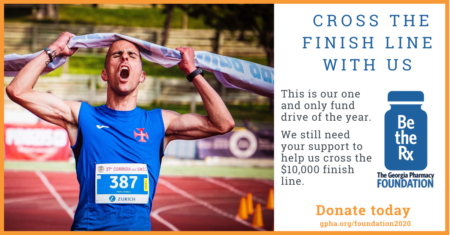Veggie bone-breakers, risky holiday plans, Christmas 1918, and more
25 Nov 2020
Posted by Andrew Kantor
Take care of grandma this Thanksgiving
Or “They really need to sort out their priorities.” Stay safe, everyone.
One in three parents say the benefits of gathering with family for the holidays are worth the risk of spreading or getting the virus, according to the C.S. Mott Children’s Hospital National Poll on Children’s Health at Michigan Medicine.
All this has happened before, all this will happen again
The last time we mixed a pandemic with holiday gatherings, it didn’t go so well.
In hindsight, it seems obvious that the third wave of the Spanish flu pandemic would follow a season of intimate gatherings and public celebration. Tens of thousands of new cases were reported between December 1918 and April 1919, many of which arose in metropolitan hotspots.
ICYMI: Purdue pleads guilty
Purdue Pharma plead guilty to three felony charges involving its marketing Oxycontin during the opioid crisis*. It admitted to lying to the DEA about having an anti-diversion program, to paying physicians to write more Oxycontin prescriptions, and to paying an EMR company to market painkillers to prescribers.
It technically won’t pay a cent in fines, though, because the $8.3 billion in penalties and forfeitures will be added to the company’s bankruptcy proceedings.
* Don’t worry, we’ll pick up that storyline next season.

Lab vs reality
Face masks can stop the spread of SARS-CoV-19; we know that. But they seem to be a lot more effective in the lab than in reality, according to folks at University, Bond University in Australia.
What’s the deal? Spoilers:
- In the real world, not everyone wears masks properly.
- People claim to wear masks a lot more than they actually do, making them seem less effective.
- Those who do wear them properly are likely to take other precautions (e.g., social distancing), screwing up the correlation/causation metric.
- Masks don’t protect eyes, so even if they do their job, infection in the real world is still possible.
Cleanup in frontal lobe
No one quite knows why we sleep, but we do know that during sleep the brain does some cleanup work. It seems that cleanup includes those nasty beta-amyloid and tau proteins — you know, the ones associated with Alzheimer’s.
Or, as the headline says, “Deep Sleep Protects Against Alzheimer’s, Growing Evidence Shows.”
Oh, yes! Yes yes yes!

Woot-Woot! We met our goal! We have the best donors ever! (By “we” we mean the Georgia Pharmacy Foundation, of course). If you haven’t had a chance to donate … now’s the time! Be the solution right here.
CDC throws up its hands
There are too many cases of Covid-19 to trace, says the CDC, which now advises overwhelmed health departments to cut back on who they contact.
Given increased demand on contact tracers, CDC advised against contacting infected people who are more than two weeks out from their positive test, except in rare circumstances, since it is likely too late to prevent them from spreading the virus to others.
The country is adding a million cases a week now, with more Americans killed by Covid-19 (in 10 months) than in all of World War 2. And the holidays aren’t even here yet….
They snap like celery stalks
Vegans and vegetarians have a noticeably higher risk of breaking their bones, especially their hips. That’s what British researchers found when analyzing records of 55,000 people over 18 years. People who took calcium supplements were better off, but still saw more risk.
“[Hip fracture] risk in vegans was 2.3 times higher than in people who ate meat, equivalent to 15 more cases per 1,000 people over 10 years,” she said. “In addition, vegans also had a higher risk of fractures anywhere in the body, as well as fractures of the legs and vertebrae when compared to the meat eaters.”
One possible reason: Vegetarians tend to be thinner, so there’s less to cushion them when they fall.
Job opportunity
If you’re looking for a new line of work, the Georgia Access to Medical Cannabis Commission is now officially looking for businesses to grow marijuana and make cannabis oil for the thousands of Georgians who have a license to possess low-THC cannabis oil, but no legal way to buy it.


